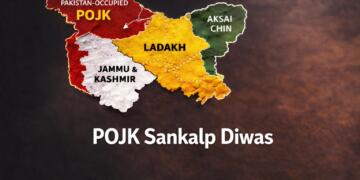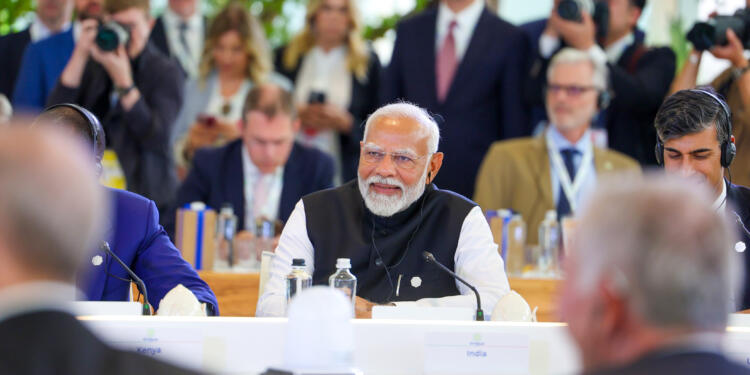PM Narendra Modi has been officially invited to attend the G7 Summit in Canada, a move that underscores India’s expanding influence in global decision-making. While India is not a formal member of the G7—a bloc of seven of the world’s most advanced economies—this repeat invitation signals that India has become a crucial voice on major international issues ranging from economic stability and global health to climate action and technology governance.
This year’s summit, hosted by Canadian Prime Minister Mark Carney, will focus on a range of critical global challenges, including climate resilience, geopolitical tensions, AI regulation, and economic cooperation in an increasingly fragmented world order. India’s presence is seen as essential for these conversations, particularly as the country balances relationships with the West, Russia, and the Global South.
Prime Minister Carney extended an invitation to Indian PM Modi to attend the upcoming G7 summit in Kananaskis, Alberta, scheduled for June 15–17, 2025. This invitation comes amid previously strained relations between the two nations, particularly following the 2023 assassination of Canadian Sikh activist Hardeep Singh Nijjar, which Canadian authorities have linked to elements within the Indian government.
India’s Diplomatic Clout on the Rise
India’s invitation to the G7 is part of a broader pattern that reflects its growing diplomatic capital under Prime Minister Modi’s leadership. Following a high-profile presidency of the G20 in 2023, where India successfully positioned itself as a bridge between developed nations and emerging economies, the G7 invite affirms that India is no longer a peripheral player, but an active shaper of global dialogue.
Whether on climate change, global trade, supply chain restructuring, or international digital norms, India’s voice is increasingly being sought—not only because of its scale and strategic location but also due to its assertive and independent foreign policy approach.
Congress’s Misfire: Jairam Ramesh Leads a Premature Attack
Amid swirling speculation that PM Modi had not been invited to the G7 summit, Congress leader Jairam Ramesh, who serves as the party’s chief spokesperson and communication head, took to social media to frame it as a diplomatic snub. Without waiting for official confirmation, he tweeted that the “self-proclaimed Vishwaguru” (a term often used sarcastically for PM Modi) had been excluded from a key global forum, alleging that this reflected India’s “diminished global standing.”
The attack, however, was premature and factually incorrect. Within hours, news emerged confirming that PM Modi had, in fact, received an official invitation from the Canadian government to participate in the G7 summit as a special guest.
The Congress’s attempt to score political points quickly backfired, drawing criticism from observers who highlighted the dangers of reacting to international matters without verifying facts. This was seen not just as a communication blunder, but also as a missed opportunity for the opposition to engage more maturely on foreign policy issues.
Pattern of Miscalculation
This is not the first time Congress leaders, including Jairam Ramesh, have been accused of politicizing international events without due diligence. Critics argue that such episodes undermine India’s bipartisan image on the world stage and reflect poorly on the opposition’s grasp of diplomacy.
Even among neutral analysts, the view is growing that India’s global standing—regardless of who is in power—should not be reduced to a domestic political football.
For a party seeking to reclaim national leadership, such errors of judgment on foreign affairs may hurt more than help.
What the G7 Invitation Really Means for India
The G7 invitation is not just ceremonial. It carries substantial strategic and symbolic value for several reasons:
India is being seen as a responsible, credible partner in solving shared global challenges. Whether it’s India’s leadership in the International Solar Alliance, its position on Ukraine, or its contribution to global vaccine equity, the world is recognizing its capacity for constructive diplomacy.
Bridging the Global North and South
India continues to act as a bridge between developed nations and emerging economies, a role it emphasized during its G20 presidency. At a time when global institutions are struggling to stay relevant, India offers an important balancing voice rooted in non-alignment but committed to cooperation.
Counterweight to China in the Indo-Pacific
India’s strategic importance is also driven by concerns over China’s increasing assertiveness. As a democracy with a growing economy and military capability, India is seen as a natural counterbalance in the Indo-Pacific framework. G7 nations increasingly rely on India as part of broader coalitions aimed at ensuring regional stability.
Technology, Trade, and Climate Leadership
India is emerging as a tech-savvy, climate-conscious nation that is also a massive consumer market. Its inputs on AI governance, data privacy, global digital rules, and energy transition are now considered indispensable to the G7 agenda.
A Diplomatic Win, and a Political Lesson
PM Modi’s G7 invitation from Canada is not just a personal or party achievement—it is a testament to India’s increasing relevance on global issues. It reflects sustained diplomatic engagement, strategic autonomy, and a broad consensus among major powers that India must be part of key global conversations.
For the Congress, and especially leaders like Jairam Ramesh, this episode should serve as a reminder: international diplomacy demands maturity, patience, and precision. Hasty conclusions and performative commentary may win headlines but often lose credibility.
As India prepares to take its place once again at the G7 table, the takeaway is clear—India’s foreign policy success should be celebrated across the political spectrum, not used as ammunition in a fact-free war of words.

























